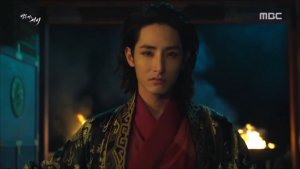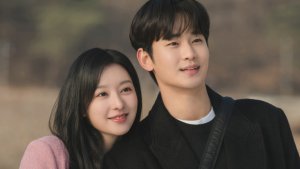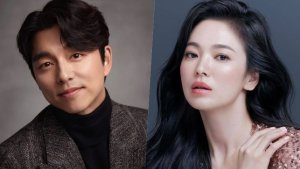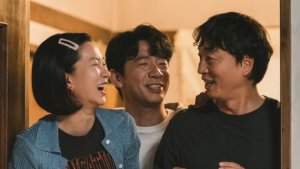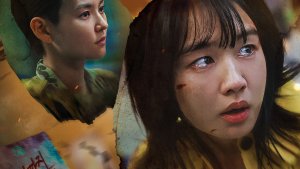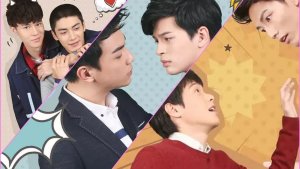 Dissecting HIStory: Part 1
Dissecting HIStory: Part 1
This piece contains major spoilers for HIStory: Right or Wrong, Trapped, and Boundary Crossing. There will not be individual spoiler warnings past this point.
There is also discussion of sexual assault. Read with caution.
I recently wrote a piece called Dissecting HIStory: Part 1, in which I talked at length about the first season of the Taiwanese BL series, HIStory. If you missed that piece, I suggest you go back and read it, since the opinions expressed there will provide you with a lot of context for what I will talk about today.
I think that season 1 of HIStory is pretty deplorable, but what season 1 does abysmally, seasons 2 and 3 do eloquently and effectively. They aren’t perfect, but they are a massive improvement over the first season and stand alone as great shows. So, what exactly makes them so good as romance shows and in terms of gay representation? Let’s chat.
I’ll start out with Right or Wrong, the beginning of the HIStory renaissance (AKA, when the franchise stopped being a dumpster fire). It does the age gap really well. It comments on single fatherhood. It has a really good message regarding parental selfishness. It opens the door to discussion of teacher-student relationships. It is more than a love story, and that's pretty impressive considering how banal BL tends to be.
Probably my biggest critique of the show is the fact that the actor who plays Fei Sheng Zhe looks like he’s smiling when he’s crying and it just doesn't look right. Also, the fact that Sheng Zhe goes from embarrassment and rejection at school straight to prostitution is a bit…much. There are also a few times where the actors accidentally hit the lavalier mics under their shirts and the behind-the-scenes folks didn’t bother to fix the audio or reshoot the scene. Out of three shows I’ll talk about today, Right or Wrong is the least refined, for sure. Still, the show is very good.
Right or Wrong is all about Shi Yi Jie, a college professor who is an absentee single father to a little girl named Yo Yo, and how he learns to be a better father from Fei Sheng Zhe, the student he hires to be Yo Yo’s sitter. He and the college student fall in love, too, because of course they do.
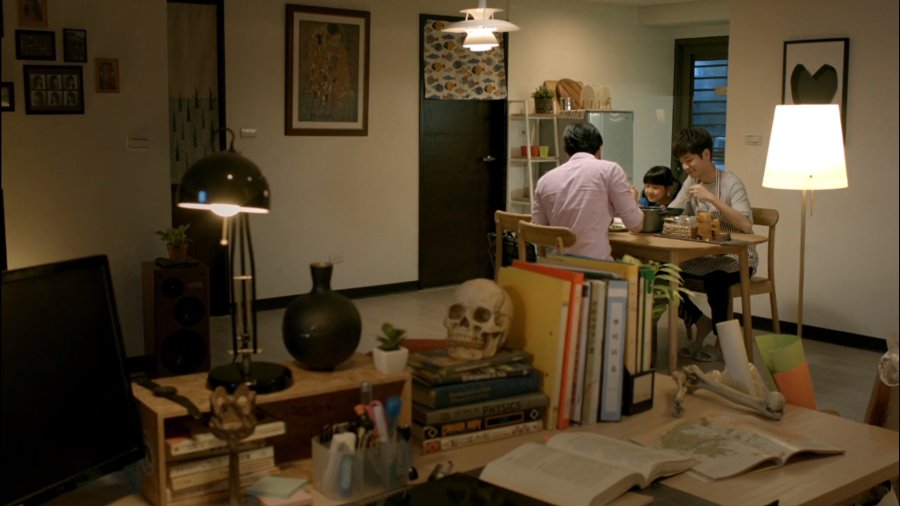
This premise set off all sorts of alarm bells the moment I read it. Many instances of teachers in the US taking advantage of underage students come to mind. In Yi Jie and Sheng Zhe’s relationship, Yi Jie does hold a lot of the power; he’s older, he has more money, and he’s Sheng Zhe’s teacher. Despite all this, Yi Jie treats Sheng Zhe fairly. Yi Jie doesn’t hold things over Sheng Zhe’s head and treats him (for the most part; it’s not perfect) like he would treat someone in his own age group or socioeconomic status. Yi Jie pays him to serve as Yo Yo’s sitter and for all the other odds and ends he has him do, rather than just expecting it because Sheng Zhe is his junior. There is some light teasing here and there, but it’s harmless, in my opinion. The checks and balances are all there.
Admittedly, Yi Jie can be a little pushy sometimes, but I don’t take issue with it because Sheng Zhe doesn’t seem bothered by it. This is different from, say, Obsessed, where the “pushy” one leaves his “love” interest visibly upset whenever they interact.
Also, the way this show deals with parenting isn’t the most nuanced thing I’ve ever seen, but it does a decent job. Since most BL series I’ve either watched or heard of don’t deal with older adults, kids don’t usually enter the mix. This show has a special opportunity to include becoming a less terrible father in Yi Jie’s journey. He sees in Sheng Zhe what he can’t or doesn’t know how to give to his daughter. He learns to become less selfish and to worry less about the globe-trotting he could do as an archaeologist and focuses instead on what he can do at home to make life the best it can be for Yo Yo and, later on, Sheng Zhe. Selfishness and parenthood just aren’t things that are approached very often in BL, so I must tip my hat to this series for trying these ideas out, even if it was a little rough around the edges.
There’s also the idea of gay parenting. One of Sheng Zhe’s biggest worries is being a bad influence on Yo Yo because he’s gay. Yi Jie quickly reassures him that Yo Yo thinks Sheng Zhe is the best thing since sliced bread. I’m glad this was included, seeing as the “gays are brainwashing our children” mindset is still very common. Gay folks never see the end of people questioning whether or not they can raise a child. Seeing a relatively mainstream series question this mindset is nifty. Right or Wrong certainly isn’t the first to do this, but it does it in such a touching, charming way, that I felt I should address it.
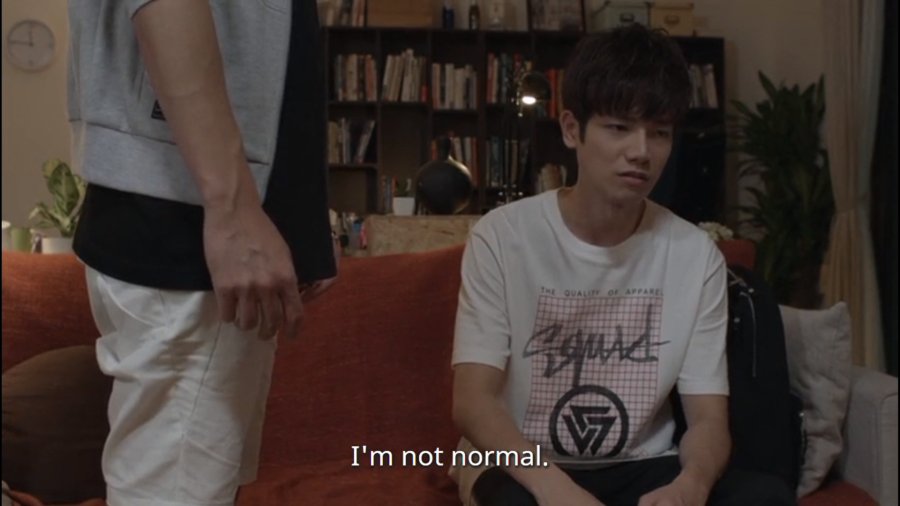
I also think that Sheng Zhe’s best friend, Ye Wen Ling, deserves a shoutout. She gives me hope that people might understand that, just because your friend is gay doesn’t mean you have to be weird about it (I'm shading you, Meng Meng). She teases him, yes, but it’s good-natured ribbing, just like I might do to my friends and what I expect them to do to me. When things get dire, she makes it very clear that she cares very much for Sheng Zhe and makes sure that, if he needs anything at all, he knows he can come to her.
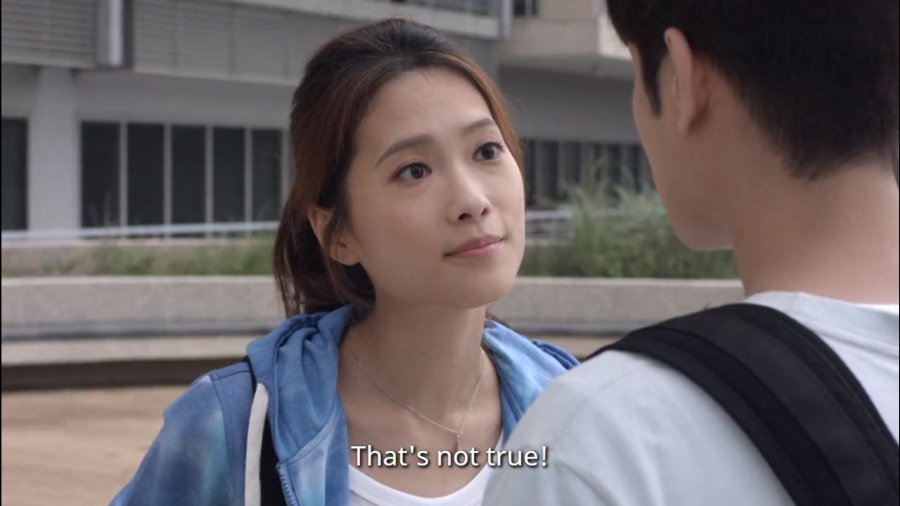
Right or Wrong definitely isn’t the peak of the HIStory renaissance, but it’s still a fun watch and worth talking about.
Then there’s Boundary Crossing, which was my first HIStory series and my first Taiwanese series. I watched this show all in one go. I didn’t go to bed until 4 in the morning that night because I couldn’t help but finish it.
This gem tells the story of two high school students, Qiu Zi Xuan and Xia Yu Hao, who become friends through volleyball and eventually fall in love. There’s also a secondary couple made up of two stepbrothers. The stepbrother thing has never sat well with me (still doesn't), but I think Boundary Crossing does it better than Stay Away from Me did, for sure.
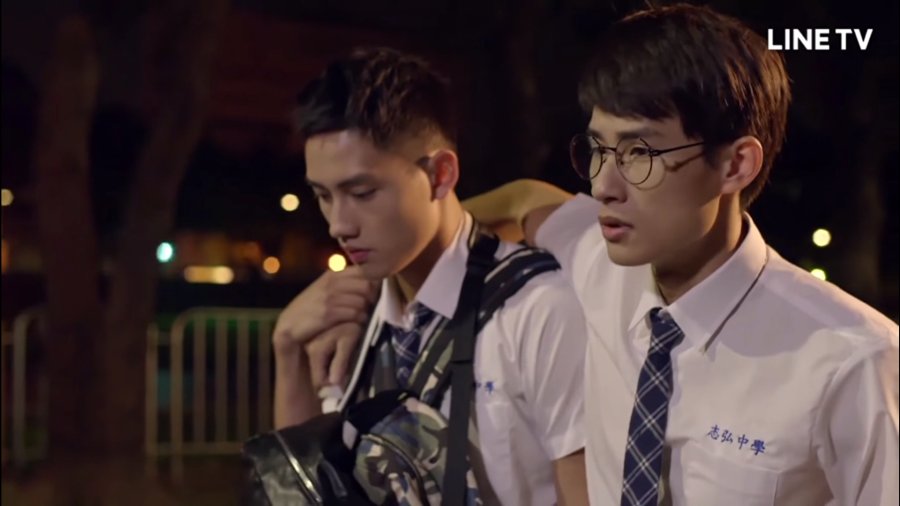
I adore this show. It’s one of the few shows I’ve watched based around a gay couple that feels completely natural. It’s about two people that fall in love, and that’s it. While people belonging to the LGBT+ community do suffer abuse the world over, not every story about a non-straight couple needs to be about that. Movies and shows that focus on LGBT+ characters tend to end in tragedy; Boundary Crossing is a shining example of how gay couples can have happy endings, too. I think that’s how representation should be. Show the difficulties of being gay, but also show that it isn’t all doom and gloom.
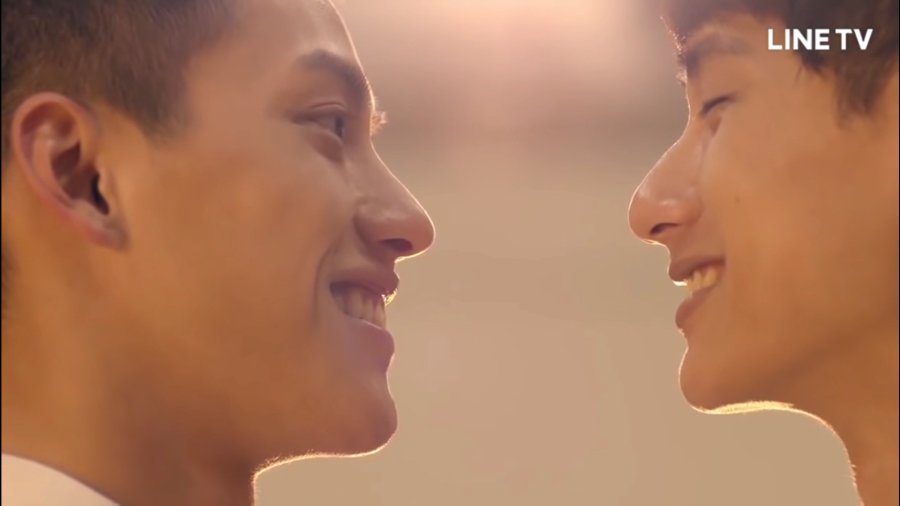
There’s an article written by Sam Ramsden that I think explains this sentiment very well. Ramsden writes,
“The issue is that there simply aren’t enough of the positive stories out there. Many would argue against this notion by pointing out that many heterosexual love stories also include sad or tragic endings – but this point of view becomes unfounded when considering the sheer amount of straight love stories that have been told throughout cinema history compared to LGBT. The reason why it’s important to make sure positive elements of LGBT life is represented more often in movies is because persistently focusing on the negative will only reinforce the idea that LGBT stories are somehow lesser than…”
Gay men are usually pegged as being terribly predatory. The only place where this behavior appears is when Cheng En and Zi Xuan are “modeling” a scene for Xiao Xiao, in which they intentionally act out the (rather harmful) “uke” and “seme” archetypes that are generally found in yaoi. This moment pokes at the way shows that focus on gay folks usually portray them. The actual couples in the show act nothing like this because it doesn’t reflect reality. Cheng En and Zi Xuan were putting on a show. Ironically, this scene is actually a decent critique of the behavior of Meng Meng from Stay Away from Me, if you remember her fujoshi antics and my incessant complaining from the first article in this series.
The other thing I really appreciate about Boundary Crossing is that it isn’t hyper-sexualized. Yes, there is that one locker room kiss, but it's a dream sequence meant to demonstrate Yu Hao’s feelings of Gay Panic™, as the internet lovingly calls it. Otherwise, Zi Xuan and Yu Hao win each other’s hearts by being kind and looking out for one another. It isn’t sexy time all the time because that’s not how real people act. Even the secondary couple is as PG as it gets. Adult activities aren’t really on the map for them. The writer doesn’t force them to be anything they’re not.
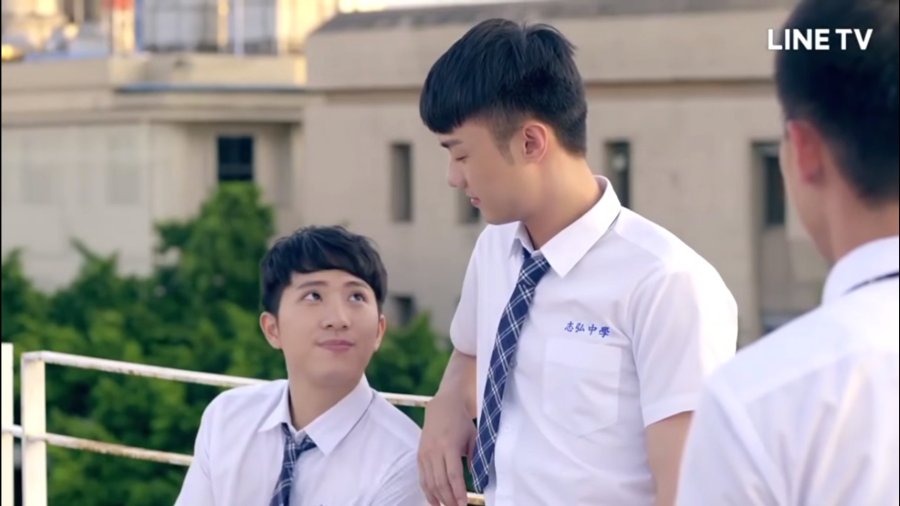
Now, I’d be lying if I said the locker room kiss wasn’t also fanservice. It absolutely is. I know it, you know it, we all know it. I give it a pass, though, because it really does serve a narrative purpose. It does contribute to Yu Hao’s character development. It isn’t just kissing for the sake of it.
I really appreciate Boundary Crossing because it does something a little different with the usual high school sweethearts formula; there's the added aspect of self-discovery with regards to sexuality. I think it's quite special, and I am very, very excited for the sequel film that Boundary Crossing will be getting. I hope it performs as well as the original.
Finally, we have Trapped. I love Boundary Crossing, but Trapped is my favorite out of the HIStory franchise by far. It’s nuanced, romantic, genuinely well-written, and fun to watch. It isn’t flawless, but its flaws add to its charm and open the door to discussion. I love Trapped for many of the same reasons that I love Boundary Crossing, but it adds some new concepts to the mix, too.
Trapped tells the story of police officer Meng Shao Fei, who became obsessed with arresting a gang leader named Tang Yi. After four years of assuming that Tang Yi was involved in his mentor’s death, Shao Fei finds that he doesn't exactly hate his gangster nemesis. Eventually, the two find that they’ve severely misunderstood one another, and they fall in love, making for a wonderful but unlikely pair.
For me, one of the most interesting aspects of the show is Tang Yi’s bisexuality. At one point in the show, Tang Yi and Shao Fei end up at the same bar. Tang Yi is there to do gangster-y things, while Shao Fei is there to make sure the gangster-y things don’t happen. In order to fit in a little better, Shao Fei starts dancing with his coworker, Yi Qi. The two of them notice that Tang Yi is also dancing… with a man. This realization sends Shao Fei into an absolute tailspin. It is in this moment that Yi Qi spills a rumor about Tang Yi: that he’s attracted to women and men.
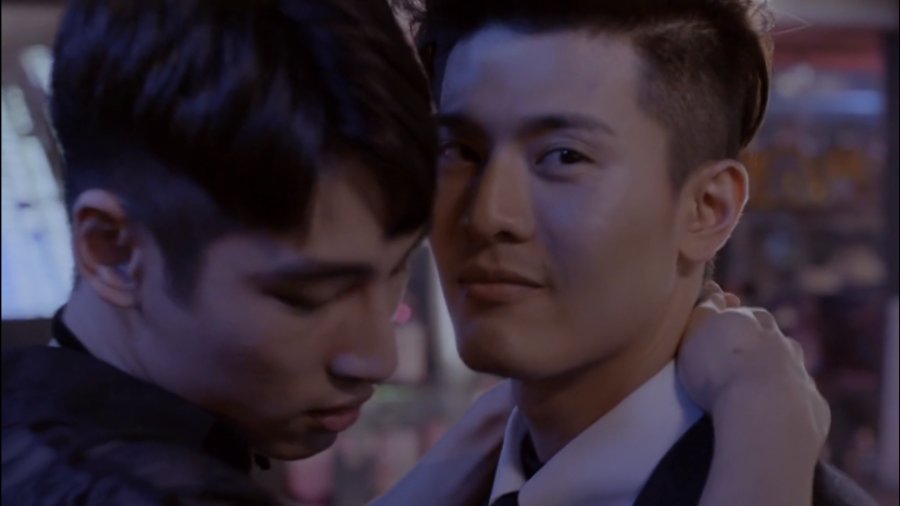
This was very, very interesting to me. Some (or many) of you might be familiar with the Broadway musical RENT, which has a character named Maurine. Maurine is known for three things:
Being played by Idina Menzel in the original Broadway cast
Singing the moo song
Being bi
The thing about Maurine being bisexual, though, is that she reinforces one of the most common negative stereotypes of bisexuality: she’s ridiculously promiscuous. Video essayist Lindsay Ellis summarizes this character best, describing her as,
“...the Slutty McSlutter-Slutterson who wants to slut it up with every living human, because bi” (taken from this video here).
Tang Yi isn’t like this. Yes, he kisses Andy in the bar, but they aren't a couple. Tang Yi describes him as being just a friend later on, and Tang Yi asks for the kiss as a “favor.” Though Tang Yi actively tries to make Shao Fei feel jealous (at first), Tang Yi also isn’t a cheater like Maurine is. He’s just a guy who likes guys and girls. He doesn’t advance any of the negative stereotypes associated with bisexual people. People are literally falling over themselves to be with him, but he’s no more prone to cheating than anyone else. He’s just… a guy. With really nice cheekbones. And great suits.
And what about our glorious, cheesy, kind of stupid hero, Shao Fei? Again, just like Tang Yi is just a guy (who happens to be bi), Shao Fei is just a guy (who falls in love with Tang Yi). Shao Fei’s sexuality is never directly addressed like Tang Yi’s is. There’s a passing joke made by Li An near the beginning, where he suggests that Shao Fei could only follow Tang Yi for so long if he was attracted to him. Not once after this joke is Shao Fei’s sexuality addressed in any transparent way. No big revelation, no admitting it to a close friend, nothing. Shao Fei isn’t concerned with the nuts and bolts of his attraction at the time the show takes place, and that’s completely okay.
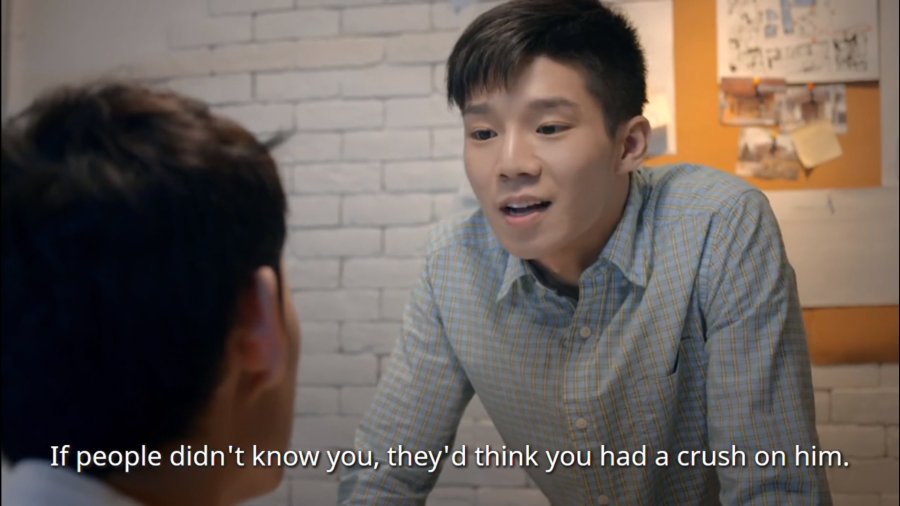
Now, I mentioned at the start of this piece that I’d be talking about sexual assault. Strap in or skip ahead.
In episode 14, Li Zhi De is driving Tang Yi somewhere and Tang Yi gets thirsty. He looks in his Perrier compartment (because of course he would have something like that), only to find that there is only one left. He drinks it, and, of course, it’s drugged. He realizes right away that something is wrong and asks that they turn around, but Mr. Li chooses instead to waste time until Tang Yi blacks out. He then pulls over, crawls into the back seat, and kisses Tang Yi while he is unconscious, before undoing Tang Yi’s shirt and tie. Tang Yi suddenly opens his eyes and begins to fight back, but he’s obviously not all there and struggles to hold his own against his subordinate’s aggressive sexual advances.
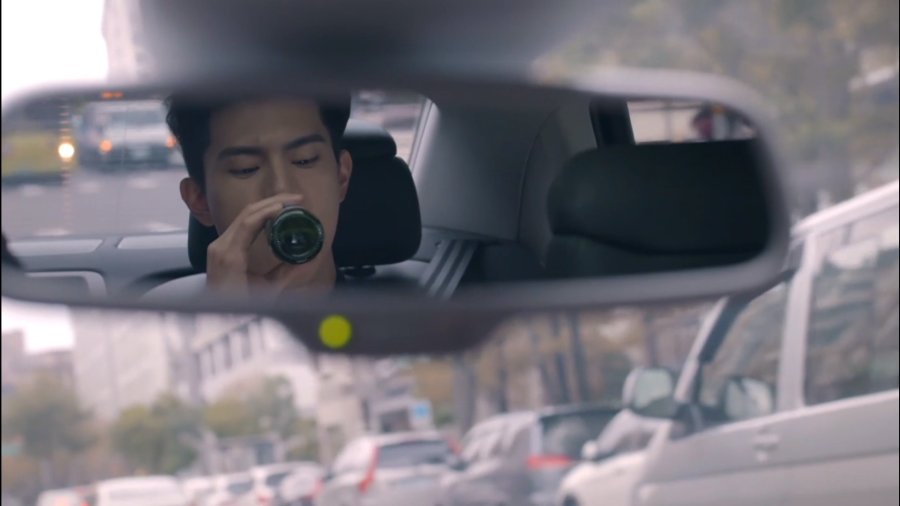
There are a few important reasons I’m mentioning this interaction. First, there are clear parallels between this assault and when Jin Teng assaults Yi Chen in his home in Obsessed. There’s a distinct power imbalance between the two parties. There’s the idea of deserving romantic and sexual attention from the victim. There are misplaced proclamations of love.
Thankfully, Trapped does something that Obsessed absolutely does not do: Trapped portrays this interaction as entirely negative. While the climax of Obsessed is an assault that results in a romantic relationship, the assault in Trapped is a terrible thing that leaves everyone very upset. Not only does this sequence reinforce the fact that assault in never a means to an end, but it also shows how anyone, including a snappily-dressed, man’s man gangster like Tang Yi, can be made a victim.
Finally, I want to talk briefly about how Trapped interacts with the “uke” and “seme” archetypes. I said that these roles in fiction are “rather harmful,” but I wanted to wait to elaborate on that opinion until I reached Trapped. If you are unaware, these archetypes come from yaoi, with the “uke” in a gay relationship being the “bottom” and the “seme” being the “top”. Tumblr user @desertgourd put it best, I think, when they wrote in a post in 2015 that this stereotype,
“...erases an LGBTQ person’s identity because reduces their entire personality to the masculine/bigger “top” and the feminine/smaller “bottom”, upholding the typical societal ideal of heterosexuality in which the larger, masculine man “protects” the smaller, feminine woman, and holds the power sexually and otherwise throughout the relationship”
What Trapped does is it breaks away from this archetype by showing both Tang Yi and Xiao Fei to have moments of dominance and submissiveness. The writer chose to show them interacting like normal people, rather than having stringent stereotypes define their entire characters. The writer could have very easily defined Tang Yi solely by his masculinity, but she chose not to. The writer made the conscious choice to have her characters have some nuance, which I really appreciate. Yes, this show is absolutely aimed at women, but it manages to provide all the romantic thrills that the intended audience seeks in this genre while avoiding harmful stereotypes. I love it.
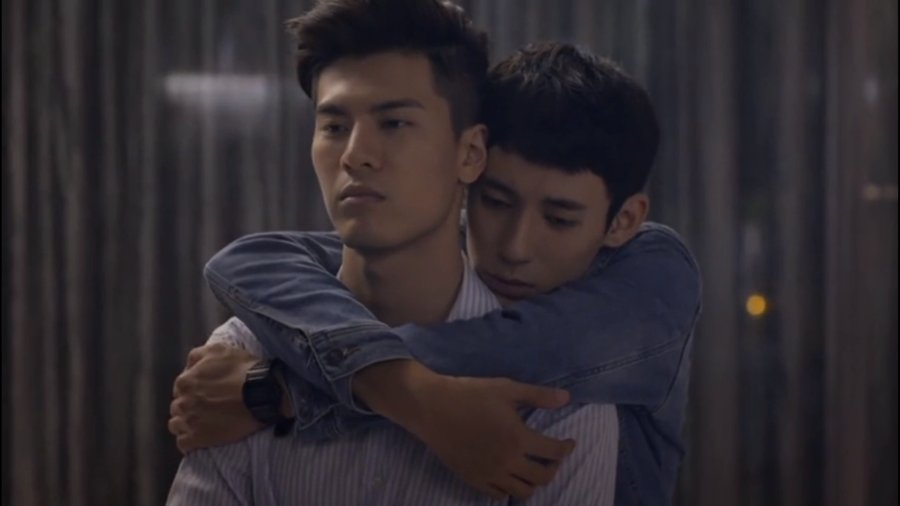
So, here we are. I’ve now talked about every part of the HIStory franchise that has been aired at this point. Are seasons 2 and 3 perfect? Absolutely not. But, I would be remiss not to point out all the great things they do not only within this franchise, but also in BL as a genre.
Some people might not see the point in talking about all this since BL isn’t meant to be a big source of representation. Unfortunately, intentionality doesn’t mean much in the grand scheme of things. Even if the stereotypes presented in these shows aren’t meant to harm LGBT+ folks, the fact is, the more you see stereotypes reinforced, the more you believe them. This is why I believe that shows like HIStory, which have large audiences, shouldn’t promote harmful stereotypes that lead to harassment and prejudice in real life.
If the writers of these shows care even a little about real life LGBT+ folks, then they have a responsibility to do right by them in their fiction. This means portraying abuse in ways that don’t glorify it. This means refraining from constantly reinforcing the “seme” and “uke” archetypes, since they erase the identities of real people. This means writing LGBT+ characters that are defined by who they are, rather than who they are attracted to. There is still room for growth, but I really believe that Right or Wrong, Boundary Crossing, and Trapped are moving in the right direction, and that is something to celebrate. As a queer person myself, I can certainly say I appreciate it.
Here’s hoping that Make Our Days Count lives up to the example set by their most recent predecessors.


